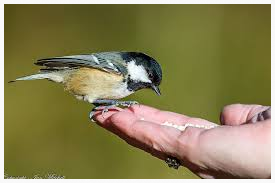Freertago? What Americans Mean When They Talk Fast
/Have you been in this situation?
You’ve studied English for many years, but you’re new in the United States. You’ve just placed your order at the fast food counter. Instead of telling you the price, the food worker says, “Freertago?” You blink, somewhat embarrassed that you have no idea what was just said to you.
“Pardon me?”
“Freertago?” she repeats.
You are still clueless, but maybe a kind person behind you explains, “She wants to know if you want to eat the food here or carry it out.”
Still blushing, you thank the stranger and mumble to the worker that you’ll be eating at the restaurant.
Fast food across the USA: for here or to go? (photo source: Wikipedia)
Fast speech.
It happens every day. In English, common phrases get mushed together so that if you don’t know what to expect, you won’t understand what Americans are saying.
Fast speech is a kind of efficient way of combining sounds, de-emphasizing unimportant parts, while stressing the important ones.
Part of your job as an English learner is to know what is likely to be said in certain situations. The other part is to become better at listening to fast (or reduced) speech.
Are there other puzzling expressions you hear every day? Send us a note about what it sounded like, who said it, and when/where they said it. We’ll help you figure it out.
Paper or plastic? (photo source: www.meijer.com)
















